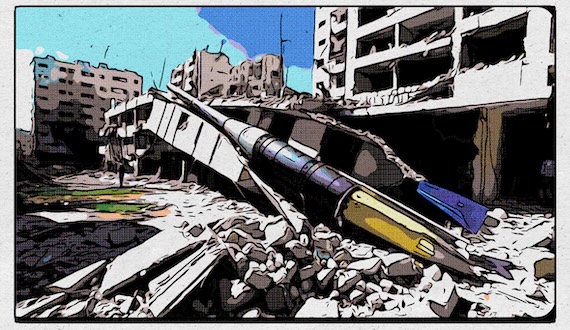Ann Arbor (Informed Comment) – The Israeli systemic destruction of civilian building infrastructure in Gaza generated over 50 million tons of debris by 1 December 2024.
Clearing this rubble will be extremely dangerous for the following reasons.
Since returning to Gaza in November 2023, explosive ordnance disposal (EOD) teams of the UN Mine Action Service have encountered more than 460 hazardous munitions visible on the ground in the regions they were able to reach.
[Explosive Ordnance Disposal (EOD) teams have come across aerial bombs, mortars, rockets, grenades, and improvised explosive devices, MK 82, MK 83, and MK 84 aircraft bombs weighing between 500 and one ton -— have frequently been observed on the surface of Gaza and along roadways. Likely these munitions will also be discovered as deeply buried explosives within structures and debris.]
As of January 21, 2025, a total of 92 casualties, encompassing both injuries and deaths, have already been recorded in the UN Mine Action Service Public Information Management System.
UNMAS notes that with the enforcement of the ceasefire prompting more individuals to move throughout Gaza and return to their residences, the risk of incidents rises as people enter unverified and possibly hazardous locations.
A snapshot of some 46 makeshift refugee camps as reported by aid organizations this week, including RC, UNRWA, ACTED, PARC/DRC, PHC, where 55,725 individuals huddle in the cold and rain without proper shelter.
Of the 46 sites, only 2 had received any humanitarian aid in the past 7 days. That is, 44 sites had received zilch, nada, zero, even basic things like food. Zero.
Only 2 of the sites had seen a bit of aid, limited to some food. So you’re talking about over 50,000 people — children, women and men, who have not been helped by the revived shipments of aid into the strip.
Yet 91% of the camps had reported a desperate need for food.
In the area of water, sanitation and hygiene (WASH) 76% said they need drinking water, 50% said they need water for washing, and 28% said they needed hygiene kits. 50% need blankets, and 30% need clothing.
A third don’t even have adequate clothing. Half don’t have enough blankets to fend off the winter cold.
About half of the internally displaced refugees living in these makeshift camps plan to leave soon.
About a quarter say they will stay where they are, which sounds pretty desperate. They clearly have no place to go back to.
Of the over 27,000 people planning on moving soon from this set of 46 camps, their destinations are as follows:
North Gaza 39%
Gaza 30%
Rafah 28%
Khan Younis 26%
Already, 376,000 internally displaced refugees are thought to have gone home to their places of origin in northern Gaza.

“Unexploded Munitions,” Digital, Dream / Dreamland v3 / Clip2Comic, 2024
The Israeli campaign of deliberate destruction of domiciles has ensured, of course, that no habitable home awaits them, but maybe the rubble of your former home is better than some makeshift camp elsewhere in the country.
In the first two days of the ceasefire, a field assessment conducted by the Palestine Water Authority (PWA) revealed significant damage to Water, Sanitation, and Hygiene (WASH) facilities in North Gaza, affecting up to 70 percent of the infrastructure and reducing water availability to just three liters per person per day. The UN says that an average person needs 50 – 100 liters per day of water for drinking, washing, etc.
In Gaza City, the PWA reported extensive destruction -— exceeding 90 percent — of the seawater desalination plant, the only facility of its kind north of Wadi Gaza, which previously supplied water to the city’s northern and western neighborhoods. The destruction of this plant has created a severe shortage in water supply, with restoration expected to take approximately a year and cost an estimated US$5 million.


 © 2026 All Rights Reserved
© 2026 All Rights Reserved